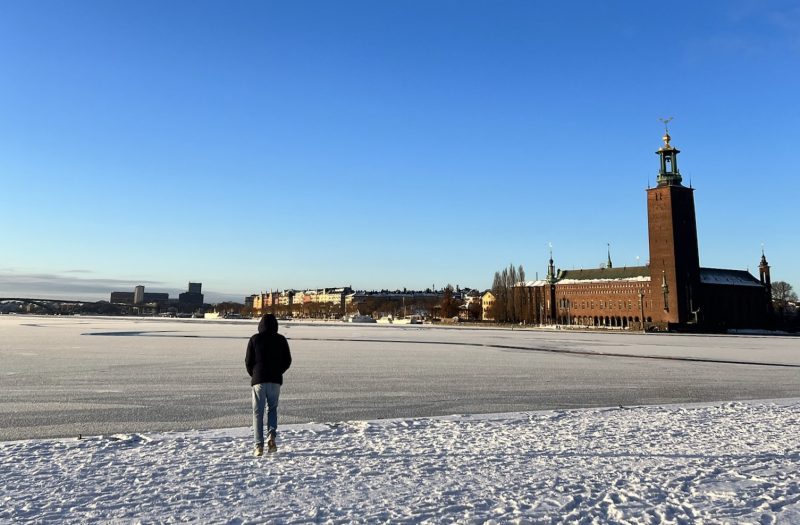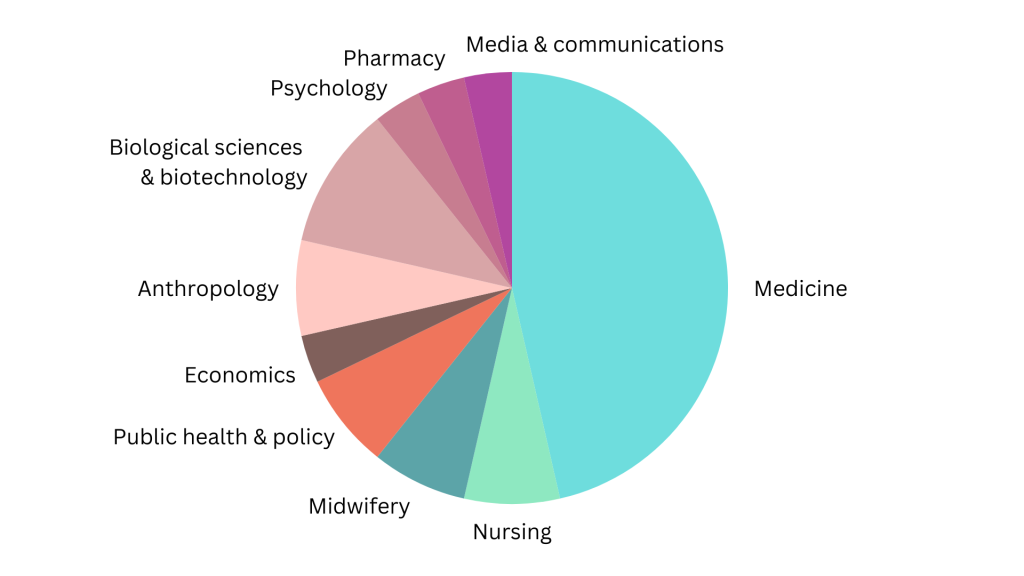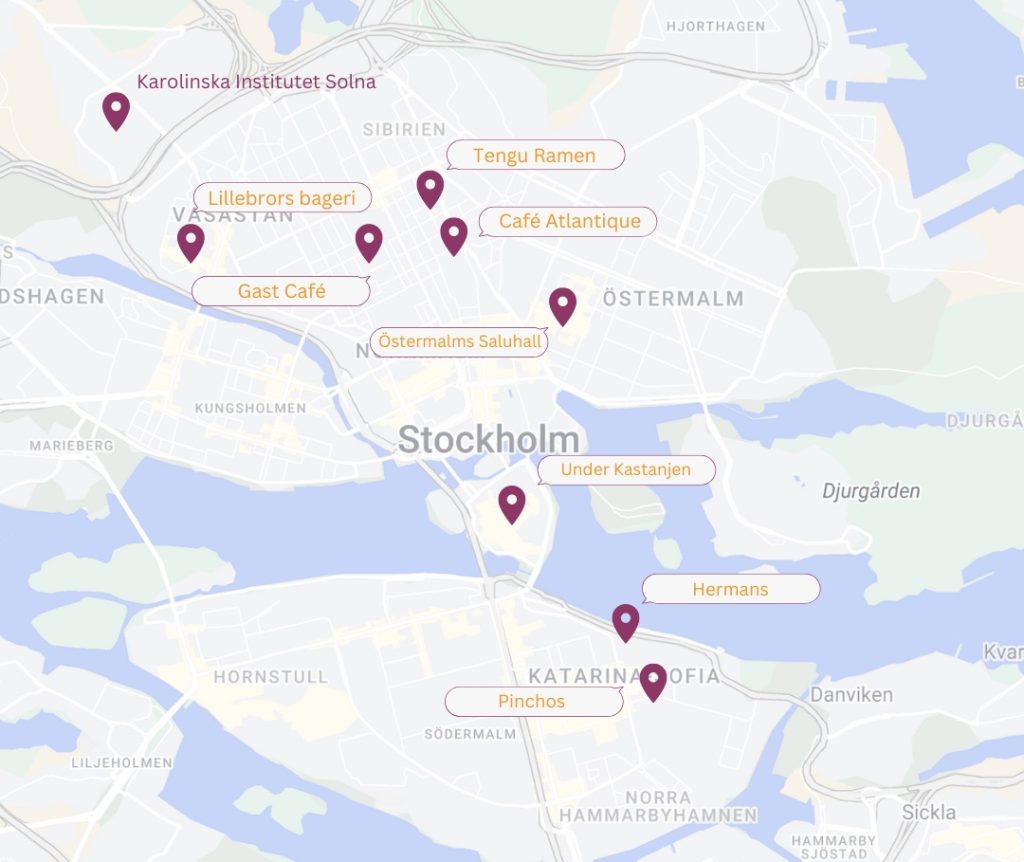
Could you be a Global Health student? (Part 2)
Hej all! Welcome back to part two of who makes up the Global Health master’s class this year. This time, we’re looking at academic and research backgrounds, thesis projects, and some of our top places to eat and drink in Stockholm. Let’s dive in!
What did everyone study for an undergraduate degree?

As reflected in the data from part 1, we have a lot of medical professionals in the class, so many of my classmates (and myself) went to medical school. However, as you can see, we still have a varied range of degrees present. Whilst many are health and science focussed, some notable exceptions are economics, and media & communications.
Do we have any global health work experience?

In the survey I sent out, I defined this work experience as experience working abroad, or working with migrant populations in your own country. Whilst we’re fairly evenly split, professional or volunteering experience in global health isn’t essential to the course. Although, hearing anecdotes from those with experience has always added to our learning on a certain topic.
Do we have global health research experience?

As you can see, a majority of the class don’t have research experience in global health. Lucky for us, we’ll leave this degree with that experience after completing our thesis projects, but again this isn’t necessary for the course. I would say though, that coming into the course with a particular research interest can be helpful – but you will also find so many more topics that you think are fascinating as you move through classes.
What are we studying for our thesis projects?

Speaking of thesis projects, here’s a sample of what topics we’ve chosen to do for our degree projects. There are a large number of maternal and child health projects this year, with only a few in disasters and conflict, and infectious diseases. Notably, whilst climate and health isn’t specifically a class that we took this year, it was a theme that was evident in many of the modules we took. Although I didn’t ask this question to the class, I know there’s also a good proportion of people who are travelling for their thesis, with destinations including Malawi, India, Tanzania, Argentina, and Nepal!
Where are our favourite cafés and restaurants in Stockholm?

This was probably the most popular question on my survey, and I got some very enthusiastic answers! Some popular answers were (with direct quotations from the Global Health class of ’24) :
- Lillebrors bageri – especially the olive and cheese bread (‘you will pass away from happiness’)
- Under Kastanjen – the fish soup is ‘phenomenal’
- Hermans – for good vegan food!
- Gast Café – the spicy tofu bowl is ‘out of this world’
- Pinchos – for Mexican food where ‘all the options are very nice’ (I admire the dedication to trying the full menu)
- Östermalms Saluhall (food hall) – for great oysters
Once again, thank you for following along! I hope this was a helpful insight into a global health class, and where you might find your place. See you next time!
Please note that this is only the class for this year, and this information has nothing to do with who is or isn’t likely to be admitted to the course, so please don’t be discouraged by this blog!

Emily - Global Health
Hi, I’m Emily! I’m from the UK, the USA and Malaysia, and I’m studying the Master’s in Global Health this year. I’m a medical student in the UK, and hope to work either in Emergency Medicine or Women’s Health, as well as in health policy development and implementation. In my free time, I love playing sports, thrift shopping, hiking and the outdoors, and trying out new cafés (all of which I have heard Stockholm is perfect for!). I’m excited to travel around Scandinavia this year, start some new sports, and explore the shops and cafés in Södermalm.

0 comments